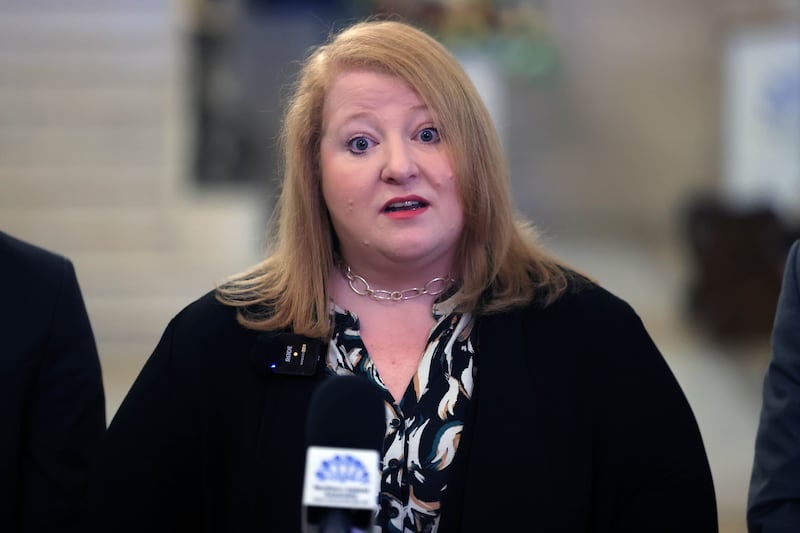Alliance Party members supporting Irish unity now outnumber those opposed to it, new academic research has revealed.
The “substantial shift” identified by the University of Liverpool shows that support for a united Ireland among members of Naomi Long’s party has surged since the 2016 EU referendum.
The polling reflects the findings of a recent LucidTalk poll which found almost a quarter of Alliance supporters (24%) backed unity in the immediate term, while a further 47% said they would be open to constitutional change in a decade or more.
Mrs Long said she “wasn’t particularly surprised by the outcome” of the new research, details of which have yet to be published.
“I’ve been saying since 2016 that Brexit was moving the dial in that direction,” she told BBC’s Sunday Politics.

The Alliance leader, who or the first time will take part in an Ireland’s Future event at Belfast’s SSE Arena in June, said people who vote for her party “are not motivated by national by the constitutional politics of Northern Ireland” but they were concerned about issues “like our engagement with Europe and our international engagement”.
“Those things really matter to them profoundly and the fact that since Brexit we have seen ourselves placed into this stasis of collapse in the institutions and unable to actually benefit from the unique access we have, I think has shifted the dial,” she said.
“What it hasn’t done, however, is it hasn’t raised the priority of this issue – when you look at the research that was done, the issue of the constitutional question is way down the priority list for our members and that is reflective of where it has always been.”
One of Mrs Long’s predecessors, Lord John Alderdice last year wrote a blog entitled ‘It’s all over bar the shouting’ in which he was critical of the DUP’s approach to Brexit and claimed the English public’s attitude to Northern Ireland has “changed profoundly” and there is “no emotional attachment” to the region.
University of Liverpool’s Professor Jon Tonge, who was among those who gathered the data for a forthcoming book on the growth of the north’s centre ground, said support for a united Ireland had increased significantly among Alliance members since they were previously surveyed in 2004.
“There has been a substantial shift towards Irish unity,” he said.
“When we did a similar academic similar survey of Alliance 20 years ago, it was explicitly a pro-union party, albeit not a unionist party,” he said.
“Only one-in-six Alliance members favoured Irish unity 20 years ago, that figure has increased substantially to overtake those who support Northern Ireland staying in the UK.”
He said the survey’s findings “doesn’t make Alliance necessarily pro-unity”.
“There’s not an overall majority for any particular constitutional option but it does reflect a shift and it has been driven by Brexit,” Prof Tonge said.
“Those members Alliance has seen a surge in membership and it’s those who joined after Brexit, they’re the ones who are particularly pro Irish unity.”



